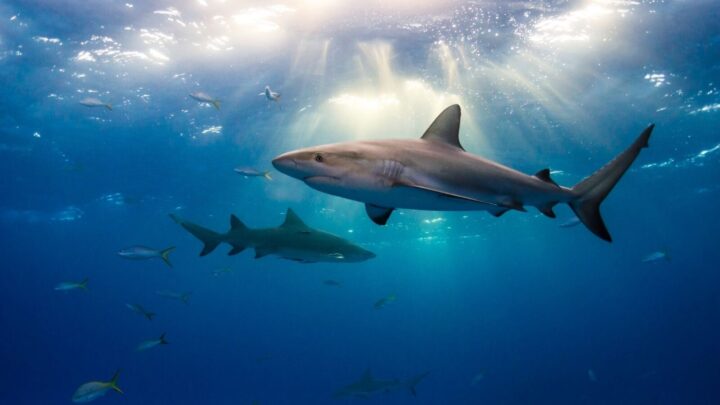
Flake has long been a staple in fish and chip shops around the country, but now calls have been made to replace the controversial meat with something more sustainable. A new campaign from the Australian Marine Conservation Society (AMCS) has encouraged seafood lovers to #GiveFlakeABreak this summer for the sake of the sharks.
In Australia, there’s no legal obligation to differentiate shark meat, commonly known as flake, between species or location, and unfortunate quirks in national environmental laws permit the harvest of endangered sharks – meaning there’s no official barriers of protection for them.
The campaign also highlighted issues with how some sharks are fished in Australian waters which can also result in the deaths of protected sharks as well as other threatened species such as turtles, dolphins, dugongs and seals.
Even though flake has been around for decades, AMCS shark scientist Dr Leonardo Guida said that it’s time to change the way the meat is presented and sold to be more transparent, ethical and sustainable in the long run.
“Fish and chips on a Friday night is an Aussie family staple, and I’ve loved it since I was a kid. But many seafood lovers may be horrified to learn that they could be eating an endangered shark if they chose flake,” said Dr Guida. “By pledging to give flake a break, we’re signalling that endangered sharks need better protection. We need to give sharks the breathing room they need to recover, while we continue to improve fisheries practices and tighten our laws.
“Flake should only refer to shark meat from gummy and rig sharks which aren’t endangered, yet endangered school shark, endangered scalloped hammerheads, and critically endangered whitefin swellshark can still end up on your plate as flake.”
This means a big part of the issue is understanding what a shop is serving up. For instance, a survey conducted by AMCS looked at 70 fish and chip shops across the country to find that less than a third (29 per cent) specified which species of shark they had on their menu.
The remaining majority only labelled the meat as “flake”, and in one case, “boneless baby shark”. These results proved how difficult it can be for seafood lovers out there to differentiate between sustainable shark meat and all the rest.
“On average, $2 is the difference between eating an endangered shark and a sustainable alternative. But you wouldn’t necessarily have to leave the shop to pick something more sustainable,” added Dr Guida. “Have a chat with your retailer, ask questions about your fish, and in choosing sustainable options, we’re better supporting local industry and healthy oceans all at once.”